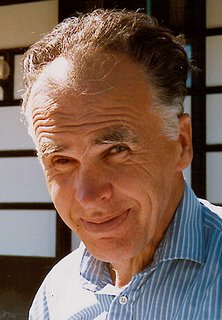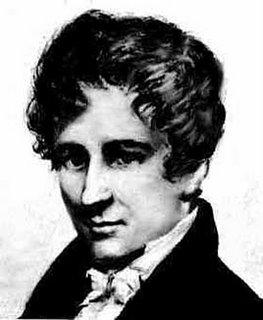Everyone of us is familiar with the Nobel prize issued anually in the field of Physics, Chemistry, medicine, Literature, Economics and Peace. If you notice carefully, there is an important branch of science missing. An wonder of wonders, it is Mathematics, the queen of subjects. There have been many speculative reasons for Alfred Nobel not to have left behind a legacy of a prize for mathematics. The wikipedia link that I have provided should answer all questions. I'll quote the clinching arguments here:
There are several possible reasons why Nobel created no Prize for mathematics. Nobel was not interested in mathematics. Nobel's will speaks of prizes for those inventions or discoveries of greatest practical benefit to mankind, possibly having in mind more practical than theoretical works. Mathematics was not considered a practical science from which humanity could benefit (a key purpose for the Nobel Foundation).
One other possible reason was that there was already a well known Scandinavian prize for mathematicians. The existing mathematical awards at the time were mainly due to the work of Gösta Mittag-Leffler, who founded the Acta Mathematica, which a century later is still one of the world's leading mathematical journals. Through his influence in Stockholm he persuaded King Oscar II to endow prize competitions and honor distinguished mathematicians all over Europe, including Hermite, Bertrand, Weierstrass, and Poincaré.
It is often repeated that Nobel refused to endow a mathematics prize because his wife had an affair with Mittag-Leffler. This story is patently untrue, as Nobel never married
All said and done, the Norwegian government began awarding the Abel Prize as a substitute for the Nobel from 2001 onwards. This is named after Niels Henrik Abel who was a young genius of his times. I still remember my mathematics lecturer in MES College quote his name reverentially, "Abel....a great man..a great mathematician" with a shake of his head as if to say, "Why did he have to die so early?" The only other mathematician in the mould of Abel, i.e. one who contributed very heavily to the world of mathematics but died early is Srinivasa Ramanujan. If you want to know more about Ramanujan, i recommend you to read this book called "The Man Who Knew Infinity" by Robert Kanigel. Brilliant writing! Even the mathematical aspects are dealt with lovely skill and the photographs are a collector's delight. Also read the magazine called Resonance. Brilliant scientific writing, much better than the crap-shit that they serve at IEEE and Sciencedirect.
 This year's Abel Prize has been awarded to the Swedish mathematician Lennart Carleson. read his biography here. Prof. Carleson's work is based on the elementary but powerful Fourier series that is being taught right from the undergraduate classes. His efforts can be summed up by these lines:
This year's Abel Prize has been awarded to the Swedish mathematician Lennart Carleson. read his biography here. Prof. Carleson's work is based on the elementary but powerful Fourier series that is being taught right from the undergraduate classes. His efforts can be summed up by these lines:For more than 150 years after Fourier’s discovery, no adequate formulation and justification was found of his claim that every function equals the sum of its Fourier series. In hindsight this loose statement should be interpreted as regarding every function for which "it is possible to draw the graph", or more precisely, every continuous function. Despite contributions by several mathematicians, the problem remained open.
In 1913 it was formalized by the Russian mathematician Lusin in the form of what became known as Lusin’s conjecture. A famous negative result of Kolmogorov in 1926, together with the lack of any progress, made experts believe that it would only be a matter of time before someone constructed a continuous function for which the sum of its Fourier series failed to give the function value anywhere. In 1966, to the surprise of the mathematical community, Carleson broke the decades-long impasse by proving Lusin’s conjecture that every square-integrable function, and thus in particular every continuous function, equals the sum of its Fourier series “almost everywhere”.
In 1913 it was formalized by the Russian mathematician Lusin in the form of what became known as Lusin’s conjecture. A famous negative result of Kolmogorov in 1926, together with the lack of any progress, made experts believe that it would only be a matter of time before someone constructed a continuous function for which the sum of its Fourier series failed to give the function value anywhere. In 1966, to the surprise of the mathematical community, Carleson broke the decades-long impasse by proving Lusin’s conjecture that every square-integrable function, and thus in particular every continuous function, equals the sum of its Fourier series “almost everywhere”.
The proof of this result is so difficult that for over thirty years it stood mostly isolated from the rest of harmonic analysis. It is only within the past decade that mathematicians have understood the general theory of operators into which this theorem fits and have started to use his powerful ideas in their own work.
An article in The Guardian simplifies matters and even gives us additional fundas about Prof. Carleson's work being used in the iPod. Sample a little:
In the 1960s Carleson showed that any sound, no matter how complicated, can be represented as a series of sine waves. "That translates in the real world as the idea that any sound can be reproduced using the sound of a tuning fork," said a University of Oxford mathematician, Marcus du Sautoy. "The sound of a lion roaring can be broken down into just simple tuning forks."
Nice isn't it? Just when you think that something has been dissected thoroughly and passed through the "sugarcane-crusher" until the last drop has been extracted, someone comes along and refines it. This is research and this is what I am not able to do.
Talking of mathematicians, no conversation is complete without paying homage to the Hungarian mathematicians who are dreaded by their contemporaries elsewhere. I remember having read somewhere after the author had mentioned a particularly difficult problem, said something similar to, "..but don't be surprised if a Hungarian walks up, takes a quick look and writes out the solution..."
Hmm...Hungary reminds me, I'm hungry...For what? I don't know...

1 comment:
loved this post man ...anything on anecdotes or history of science/economics - my latest fetish :)
Post a Comment